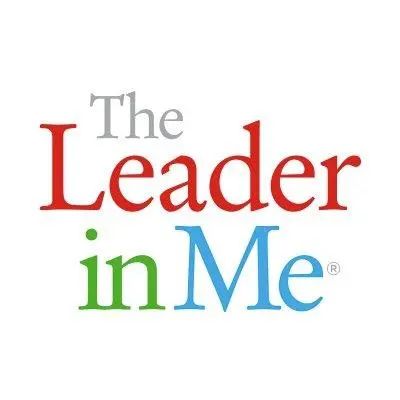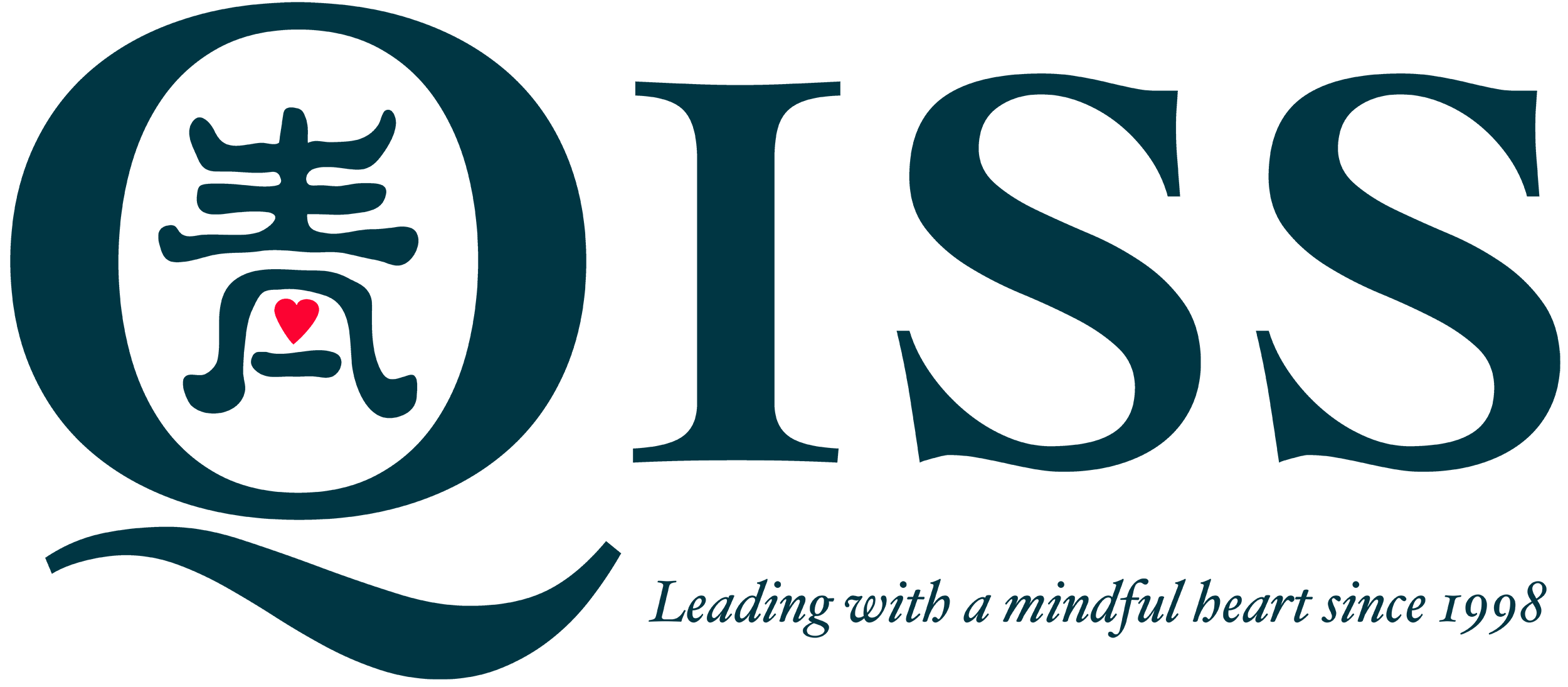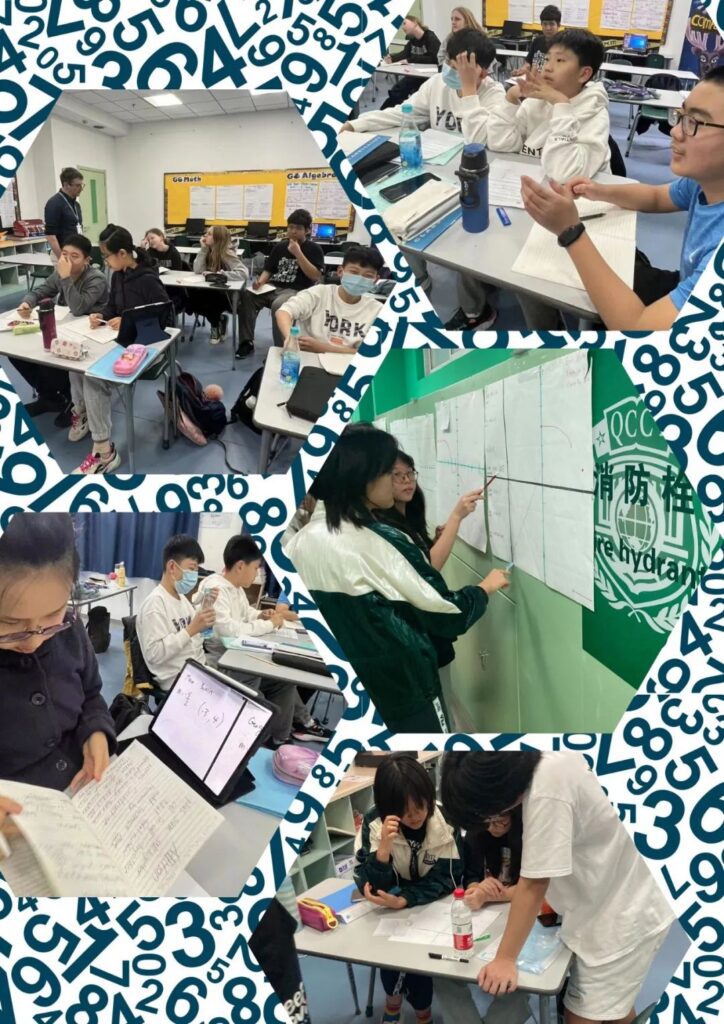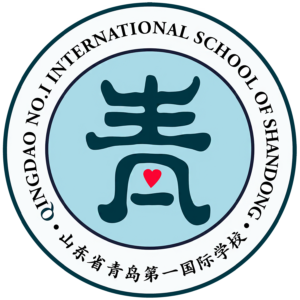All of the Mathematics courses offered at QISS are designed using the standards of the Common Core Curriculum for the appropriate grade level. For grades 11 and 12, we offer Advanced Placement (AP) courses for Calculus and Statistics. These AP courses offer QISS students the opportunity to do college-level work while still in high school. These courses are also GPA weighted to acknowledge the commitment and dedication that is required to be successful in an AP Course. In May, students have the opportunity to take the AP test, which colleges could grant students college credit based on the student’s score and the college’s requirements. Listing AP courses on a student transcript, earning a GPA boost, and receiving any potential university credit are all encouraging for university admissions officials to see when applying for university.
QISS提供的所有数学课程都是根据相应年级的课程标准设计的。对于11和12年级的学生,我们提供微积分和统计学的AP课程。这些AP课程为QISS的学生提供了在高中阶段为大学做准备的机会。并且,这些课程也会给与相应的GPA分数。在5月,学生可以报名参加AP考试,大学会根据学生的AP考试分数以及该校具体要求来给予学生对应的大学学分。学生在成绩单上列出所学过的AP课程,以及提前获得任何目标大学的学分,都是每所大学的招生官在看见学生的申请表时很乐意看到的事情。
QISS에서 제공하는 모든 수학 수업은 해당 학년의 커리큘럼 기준에 따라 설계됩니다. 저희가 11학년과 12학년 학생들에게는 미적분 및 통계학 AP 과정을 제공합니다. 이러한 AP 과정은 QISS 학생들에게 고등학교 단계에서 대학을 준비할 기회를 제공합니다. 그리고 이러한 수업에도 해당 GPA점수를 받을 수 있을 것입니다. 매년 5월에 학생들은 AP 시험에 지원할 수 있으며, 각 대학은 학생들의 받은AP 시험 점수와 본교의 요구에 따라 학생에게 대학 학점을 인정합니다. 학생들이 학습한 AP 과정을 고등 학교 성적표에 나열하고 목표 대학의 학점을 미리 획득하는 것은 각 대학의 입학사정관들이 학생들의 지원서를 볼 때 환영할 것입니다.


Many of the upper school Math classes are taught using the Experience First, Formalize Later (EFFL) model. A typical class will begin with students working collaboratively in small groups through a sequence of carefully crafted questions that slowly build in complexity (Experience First). Following this activity, the teacher facilitates a discussion connecting students’ ideas with academic vocabulary and notation (Formalize Later). This approach encourages students to build strong math identities and take an active part in mathematical sense-making.
许多高中部的数学课都采用 “先体验,后形式化”(EFFL)的教学模式。一节课开始时,学生们会以小组合作完成一连串精心设计的问题,这些问题的复杂程度慢慢增加(体验第一)。在这个活动之后,老师会指导展开讨论,将学生们的想法与学术词汇和符号联系起来(后期形式化)。这种方法鼓励学生与数学之间建立强烈的认同感,积极参与到数学的学习中。
많은 고등부의 수학 수업은 ‘선 체험, 후 공식화'(EFFL) 교육 모델을 채택합니다. 수업이 시작되면 학생들은 팀 협력으로 신중하게 설계된 일련의 문제를 완료하고 이러한 문제의 복잡성이 점차 증가합니다(경험이 우선). 이 활동이 끝나면 선생님이 토론을 지도하여 학생들의 생각을 학술용어와 기호로 연결합니다. (후 공식화) 이 방법은 학생과 수학 사이에 강한 정체성을 확립하고 수학 공부에 적극적으로 참여하도록 장려합니다.
The upper school Math teachers at QISS have been teaching for an average of 10 years. The entire department is dedicated to see students being successful inside and outside the classroom. Teachers offer time before and after school to students who may need extra support. They are always looking at new ways on how to effectively engage the students in lessons and bring a positive attitude to new challenges that may be thrown at them during these pandemic times.
QISS中学部的数学老师拥有平均10年的教学经验。整个部门都致力于看到学生在课堂内和课堂外取得成功。老师们可以在课前和课后为那些需要帮助的学生提供个别指导。他们一直在寻找新的方法,可以让学生有效的参与到课程中,以积极的态度面对在这个疫情状况下可能出现的新挑战。
QISS 중고등부의 수학 선생님은 평균 10년의 교수 경험을 가지고 있습니다. 모든 부서는 학생들이 교실 안과 밖에서 성공하는 것을 보기 위해 노력하고 있습니다. 선생님들은 수업 전과 후에 도움이 필요한 학생들에게 지도 시간을 제공할 수 있습니다. 선생님들은 항상 학생들이 이 전염병 상황에서 발생할 수 있는 새로운 도전에 긍정적인 태도로 수업에 효과적으로 참여할 수 있는 새로운 방법을 찾고 있습니다.










